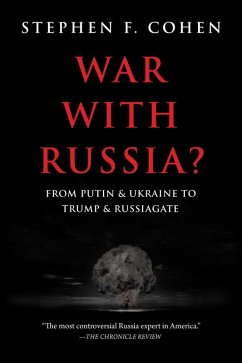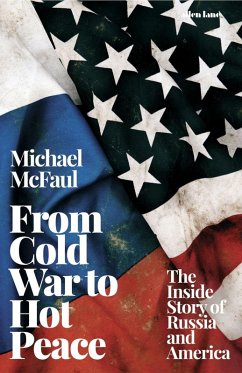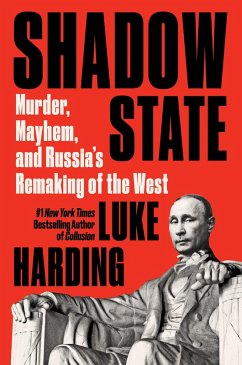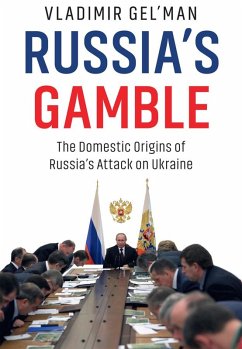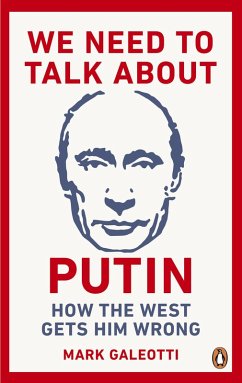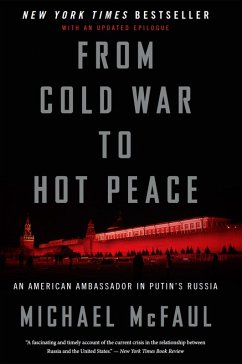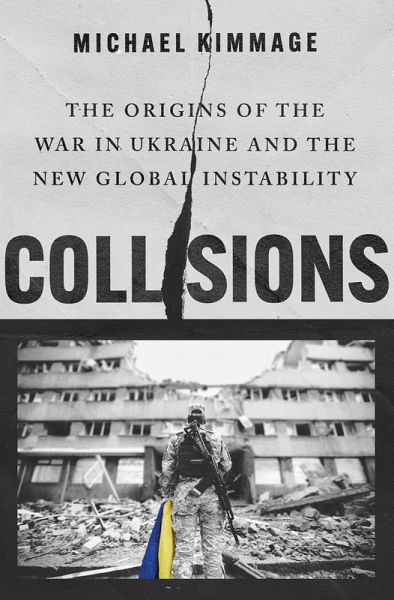
Collisions (eBook, ePUB)
The Origins of the War in Ukraine and the New Global Instability

PAYBACK Punkte
8 °P sammeln!
One war: three collisions--in this vividly written, narrative history of the war in Ukraine, Michael Kimmage puts together the pieces of a complicated international puzzle to understand the origins of the current conflict that has brought the world to the brink of a new Cold War. In Collisions, Michael Kimmage, a historian and former State Department official who focused on the Russia-Ukraine conflict, offers a wide-angle, historically informed account of the origins of the current Russia-Ukraine war. Tracing the development of Ukraine and Russia's fractious relationship back to the end of the...
One war: three collisions--in this vividly written, narrative history of the war in Ukraine, Michael Kimmage puts together the pieces of a complicated international puzzle to understand the origins of the current conflict that has brought the world to the brink of a new Cold War. In Collisions, Michael Kimmage, a historian and former State Department official who focused on the Russia-Ukraine conflict, offers a wide-angle, historically informed account of the origins of the current Russia-Ukraine war. Tracing the development of Ukraine and Russia's fractious relationship back to the end of the Cold War, Kimmage takes readers through the central events that led to Vladimir Putin seizing a large portion of Ukraine--the Crimea--in 2014 and, eight years later, initiating arguably the most intensive military conflict of the entire post-World War II era. From the halls of power in Washington, Kyiv, and Moscow to the battlefields of Ukraine, Kimmage chronicles Putin's ascendancy to the Russian presidency, delves into multiple American presidencies and their dealings with Russia and Europe, and recounts Europe's efforts to bring Ukraine closer to the European Union. He tells the story of how Ukraine went from an embattled country on the edge of Europe to a formidable military power capable of pushing back the Russian military. Just as importantly, Kimmage captures how the current war has transformed multiple centers of power--from China to the United States--and dramatically altered the path of globalization itself. He makes the case that the war in Ukraine has shifted the direction of major macro-trends in world politics, contributing to the fragmentation of international politics, higher inflation, greater food insecurity, and the general collapse of arms control. These intersecting dangers amount to a new age of global instability, born in war and in the collision between Russia and the United States that has brought the world to the brink of a new Cold War. An authoritative interpretation of possibly the most important geopolitical event of the post-Cold War era, Collisions is essential reading for anyone interested in the origins of this epochal conflict and its ripple effects across the globe.
Dieser Download kann aus rechtlichen Gründen nur mit Rechnungsadresse in A, B, BG, CY, CZ, D, DK, EW, E, FIN, F, GR, HR, H, IRL, I, LT, L, LR, M, NL, PL, P, R, S, SLO, SK ausgeliefert werden.




